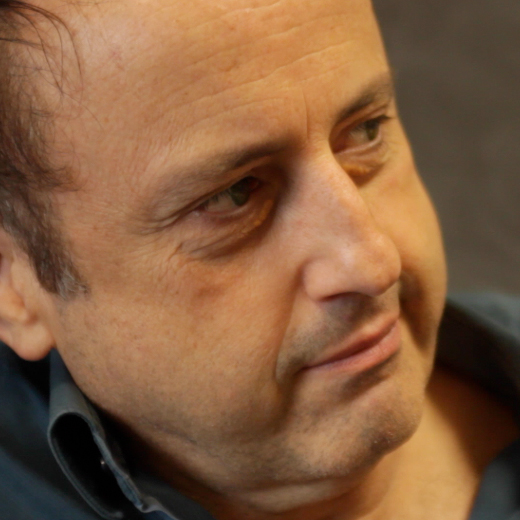Stefano Gustincich, 2003

Career Development Award Project Title
“Functional genomics of neural networks”, 2003
Who he is
Stefano Gustincich is a molecular biologist whose specialty is in the genomics of the nervous system. He received his BSc in biology in Trieste and his doctorate from the International School for Advanced Studies (SISSA). His story is a textbook case of how grants from the Armenise Harvard Foundation can allow an Italian researcher to literally “bring back home” skills and scientific experience gained in the best laboratories around the world. After his PhD he spent ten years of research abroad, working for a long period at the Harvard Medical School in the laboratory of Elio Raviola where he specialized in genomics and cutting-edge molecular biology. In 2003, thanks to the Career Development Award he established a laboratory of neurogenomics at SISSA in his hometown Trieste. Stefano has always been interested in combining technological innovation with biology. In this context, he was awarded the Italian prize in “innovation for life sciences” in 2011. He is currently leading the Research Domain “Technologies for Life Sciences” at Italian Institute of Technology, Genova, Italy with more than 30
independent research groups ranging from nanotechnology to genomics. Stefano directs a new RNA Technology Center at IIT, Erzelli. Since January 2020 he is also the Director of the Center for Preventive, Predictive and Personalized Medicine at Aosta.
What he does
Gustincich’s Lab interests concern the biology of the non-coding portion of the genome, the so-called “Junk DNA”. His laboratory recently discovered the SINEUPs, a new functional class of antisense long noncoding RNAs able to increase translation of their sense gene. For their economic exploitation in gene therapy of haploinsufficiency diseases, Stefano co-founded TranSINE
Therapeutics, a biotechnology company located at Cambridge, UK. To study the mammalian transcriptome, he has been part of the FANTOM project, a joint international effort led by the Japanese research institution RIKEN. Furthermore, he coordinated a large international consortium (Dopaminet) focused on the molecular networks of dopaminergic neurons. In this context his laboratory discovered the expression of hemoglobin in the brain. More recently, his lab has been interested in the study of genomic plasticity in the nervous system and its dys-regulation in neurodegenerative diseases. Special emphasis has been given to the discovery of somatic structural variations involving Transposable Elements.
News from the Lab
Among the most significant recent discoveries from Gustincich’s laboratory there is one that revealed, unexpectedly, that hemoglobin is also produced in the brain (and not only in the blood).
The research group has also discovered a previously unknown class of long RNA sequences that do not encode for a protein but that have the function of activating “sister” sequences, which instead are translated into proteins.


